Odyssey Records
3920 Dublin St.New Orleans LA 70118
Odyssey Records, a local music shop, was an incubator of New Orleans’ hip-hop scene from its dawn in the 1980s through its golden era in the 1990s. Odyssey’s storefront in a strip mall here earned a place in rap history as the spot where, in 1993, an 11-year-old Lil Wayne first met Cash Money Records co-founder Bryan “Baby” Williams, while a young DJ Khaled looked on from behind the counter; all three went on to the upper echelon of the industry.
In 1980 Henry Holzenthal and his sons Gary and Karl opened the first Odyssey location here, near the border of Gert Town and Hollygrove, a neighborhood where a disproportionate number of the city’s earliest hip-hop artists lived. The birth of bounce music in nearby Ghost Town Lounge in 1991 inspired new artists, DJs, and record labels to crop up across the city. Per the Times-Picayune in 1992:
[Gary] Holzenthal said that the vast majority of the business at his Carrollton Shopping Center store is rap. Of his 12 top-selling cassettes (tapes account for more than half of his business), nearly all are rap and eight of those are by local artists.
We’re talking serious numbers: “(The Original) Where They At” by D.J. Jimi sold more than 100,000 copies this year, Holzenthal said.
“I made a prediction nine months ago that…New Orleans will be the next hotbed of rap music,” said Odyssey Records’ Holzenthal. “It already is.”
DJ headquarters
Captain Charles, one of the city’s top DJs, told ethnomusicologist Dr. Holly Hobbs, “Baby and them [of Cash Money Records], Master P and them [of No Limit Records], all the local rappers in this city back in the 80s, you had to go through Gary if you wanted your records to be pushed and wanted people to buy them, because that’s where all the DJs in the city went.”
Odyssey attracted DJs by stocking turntables, mixers, amps, and other gear in addition to the latest releases and European imports on vinyl. Hip-hop mogul DJ Khaled, who got a job here as an 18-year-old in 1993, set the scene in his memoir:
I set up some turntables behind the counter at Odyssey Records, where I worked, so I could practice and make sure I kept my skills up. That was like my little office, too; sometimes when the boss wasn’t looking, I’d make some long-distance calls to different people in the industry, trying to hustle and network. Anyway, people would walk in and I’d be mixing it up and scratching while they bought CDs and tapes. Birdman [as Baby was later known] used to come twice a week with Slim, his brother and partner in Cash Money. I’ll never forget—they would bring me CDs and tapes to stock out of their trunk.
Gary Holzenthal told the Miami New Times that, after discovering mysterious long-distance charges on his phone bill, one day he discovered Khaled on the horn in his office with his feet up on the desk: “I think that may have been how we ended our professional relationship.”
Khaled writes that he left New Orleans for Florida after winning $5,000 in a DJ contest, but not before witnessing that “historical” meeting between Lil Wayne, then Dwayne Carter, Jr., and Baby at an autograph session for Lil Slim, a Cash Money artist. Lil Slim knew Lil Wayne from Hollygrove, and introduced him to Baby. Lil Wayne rapped for Baby and got his card, then called him every day until he got an invitation to the Cash Money office (his debut with the label came in 1995).
Meanwhile, Holzenthal hired other DJs to work at Odyssey, including Leroy “Precise” Edwards, who lived in Hollygrove and also worked at Allen Toussaint’s Sea-Saint Studio. Precise produced early bounce hits by DJ Jimi, including “(The Original) Where They At” and “Bounce for the Juvenile,” which broke Juvenile into the industry. Precise also co-founded Big Boy Records, an important local hip-hop label, where he produced hits for Mystikal and classics for Partners N Crime and others.
Big Fess and Don Juan of the DJ group Full Pack both worked at Odyssey, too. Their contacts at the store helped them get into production, as DJ Don Juan recounted to Hobbs: “I was always interested in how to make beats, and [Precise] took me under his wing and showed me how to do it.” According to DJ Big Fess, “We owe a lot of thanks to Gary at Odyssey Records. He reported to Billboard magazine so we got to be able to meet a lot of people doing meet-and-greets, and that…was a big influence, like: ‘We can do this.’”
Full Pack went on to produce records for a litany of New Orleans rappers, including the bounce classic “Got To Be Real” by Pimp Daddy on their own Pack Records label; Choppa’s signature hit “Choppa Style” for Master P’s New No Limit Records; and “Show Dat Work (Shake It Like A Dog Pt. 2)” by Kane & Abel featuring Mystikal and 5th Ward Weebie, which was released nationally by MCA.
The Holzenthal Family
In the Times-Picayune, Alison Fensterstock wrote about Gary Holzenthal, who started in the business at age 17:
Holzenthal comes from a music-industry family; both his grandfather and his father-in-law were in the jukebox business. His father, Henry Holzenthal – who, in his 80s, often still can be found behind the counter – sold 45s from the back of a 1957 Mercury station wagon in the ‘60s, playing the records on a portable turntable hooked up to the car’s battery. Under the name Bob Douglas, the elder Holzenthal cut a single for the Ace label, recorded at Cosimo Matassa’s J&M studio in 1956.
Odyssey expanded from its original space to a larger storefront in the Carrollton Shopping Center in 1986, opened a second store at 1012 Canal Street in 1988, and opened a third one in the Plaza Shopping Center in New Orleans East in 1991.
Much of the store’s reputation stems from Gary’s embrace of hip hop in this period, when other white retailers avoided it. Odyssey hosted a stream of in-store performances, meet-and-greets, and events promoting rap, including visits from Run DMC and MC Hammer at the height of his popularity to rappers on No Limit and Cash Money Records.
Reflecting on the success of local artists like Warren Mayes, who scored a deal with Atlantic for his hit “Get It Girl” (ghost-written by Mia X and originally released on Bobby Marchan’s Manicure Records), DJ Captain Charles said, “Without Gary at Odyssey Records, I don’t think a lot of these guys would have done well.” Gary even produced an album for Black Menace, a group from Hollygrove. It wasn’t released, but, they told Hobbs, it led to their deal with Big Boy Records around 1993.
In 2002 Odyssey consolidated its operations in the Canal Street building, which, Gary told the Times-Picayune, took “3 feet of water and 60 feet of fire” in the aftermath of Hurricane Katrina. It reopened after an overhaul in 2007 but closed for good in 2013. Around the same time, the Carrollton Shopping Center, Odyssey’s original location, gave way to a Costco parking lot.
Videos
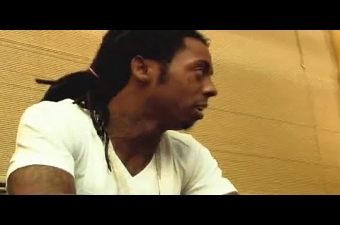
Lil Wayne recounts his fateful 1993 meeting with Baby of Cash Money Records at Odyssey, his neighborhood music store.
Video posted by Louisianimal.
Lil Wayne recounts his fateful 1993 meeting with Baby of Cash Money Records at Odyssey, his neighborhood music store.
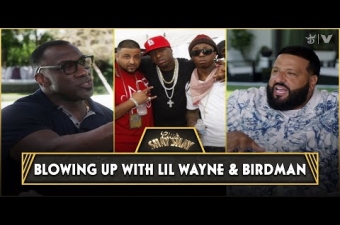
DJ Khaled shares his memories of Lil Wayne and the early years of Cash Money Records from his perspective behind the counter at Odyssey Records.
Video by Club Shay Shay.
DJ Khaled shares his memories of Lil Wayne and the early years of Cash Money Records from his perspective behind the counter at Odyssey Records.
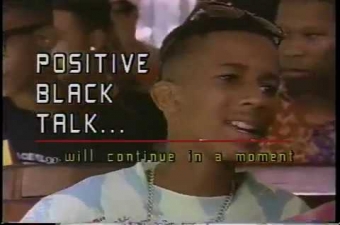
Shot in Odyssey Records ca. 1990, this episode of "Positive Black Talk," co-hosted by Earl Mackey (later of Take Fo' Records), features an interview with Mannie Fresh and Mac.
Video by Positive Black Talk NOLA.
https://www.youtube.com/@positiveblacktalknola3700
Shot in Odyssey Records ca. 1990, this episode of "Positive Black Talk," co-hosted by Earl Mackey (later of Take Fo' Records), features an interview with Mannie Fresh and Mac.
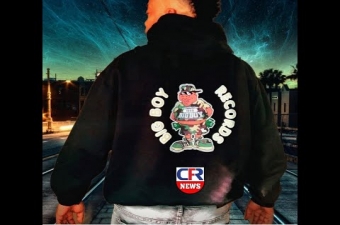
"In the Mind of Leroy Precise Edwards," a long conversation with the hit-making producer who worked at Odyssey Records.
Video by CFR Network.
"In the Mind of Leroy Precise Edwards," a long conversation with the hit-making producer who worked at Odyssey Records.
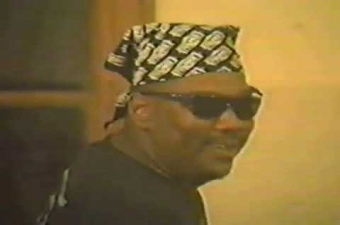
Music video for Full Pack's 1991 song "Give You What You Want." Odyssey Records helped Full Pack members Big Fess and Don Juan break into the industry.
Video by Full Pack Music.
Music video for Full Pack's 1991 song "Give You What You Want." Odyssey Records helped Full Pack members Big Fess and Don Juan break into the industry.
Images

















